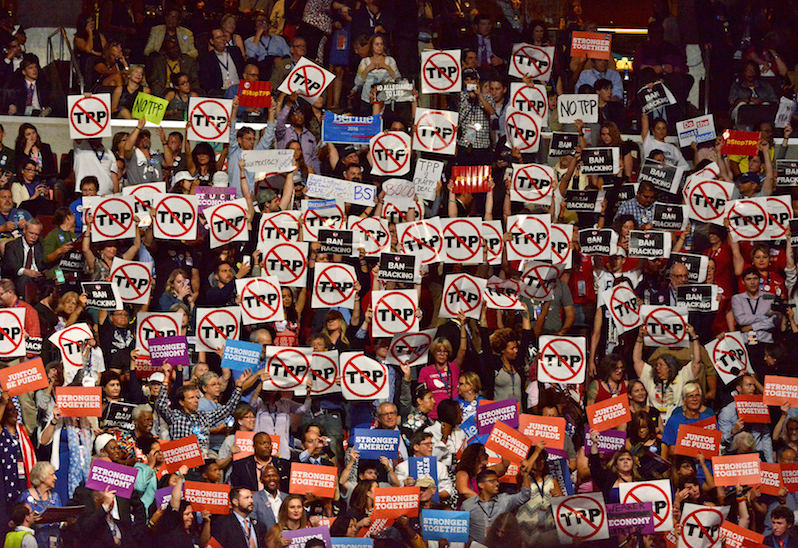Why Sanders’ ‘Berners’ Kept Up the Heat
As a member of the California delegation, I could see that the Democratic convention was never going to be a harmonious melding of two campaigns The Clintonites were fighting not a candidate but a wildfire As a member of the California delegation, I could see that the Democratic convention was never going to be a harmonious melding of two campaigns. Some delegates at the Democratic National Convention held up signs protesting the Trans-Pacific Partnership. (Disney / CC 2.0)
1
2
3
4
5
Some delegates at the Democratic National Convention held up signs protesting the Trans-Pacific Partnership. (Disney / CC 2.0)
1
2
3
4
5
Independent journalism is under threat and overshadowed by heavily funded mainstream media.
You can help level the playing field. Become a member.
Your tax-deductible contribution keeps us digging beneath the headlines to give you thought-provoking, investigative reporting and analysis that unearths what's really happening- without compromise.
Give today to support our courageous, independent journalists.






You need to be a supporter to comment.
There are currently no responses to this article.
Be the first to respond.